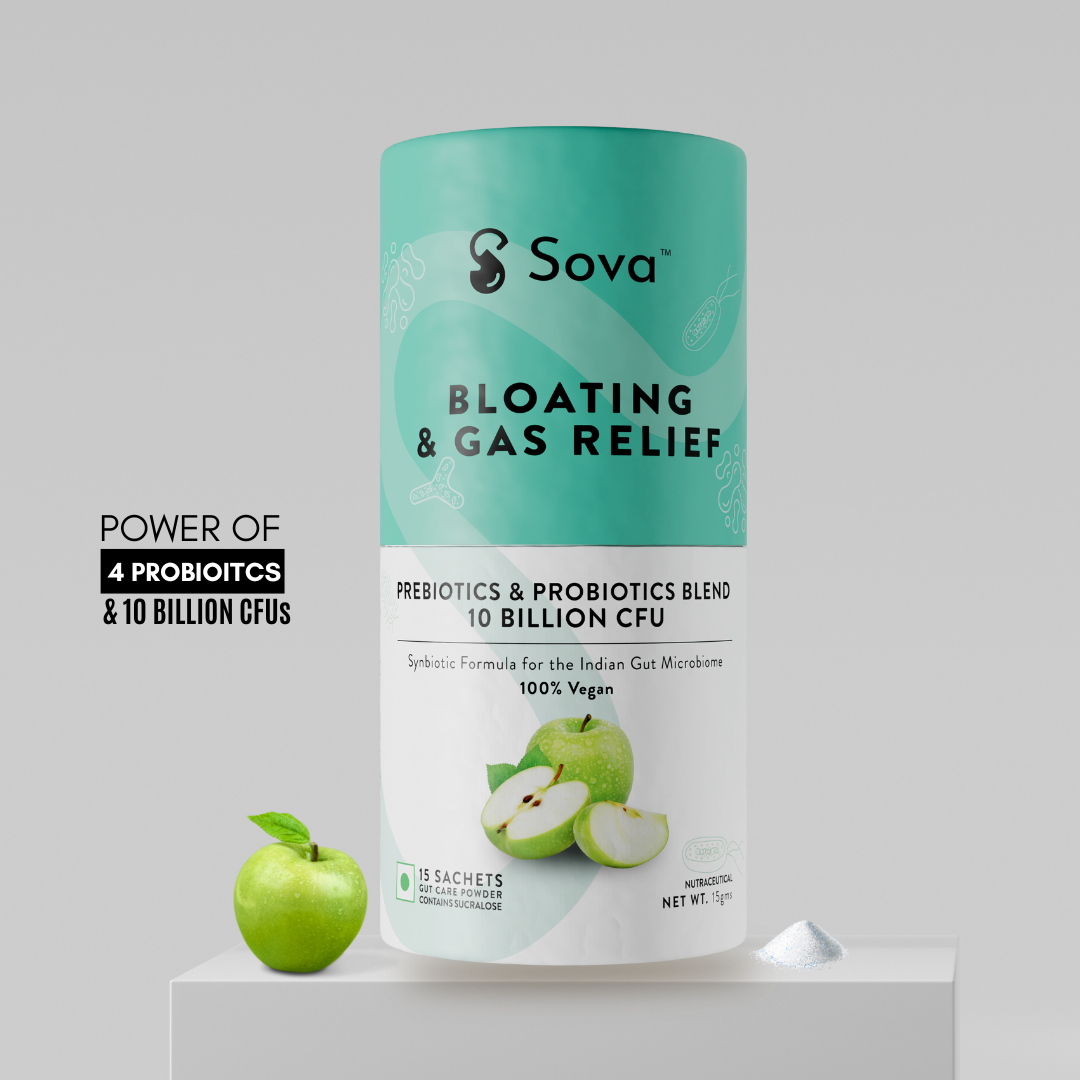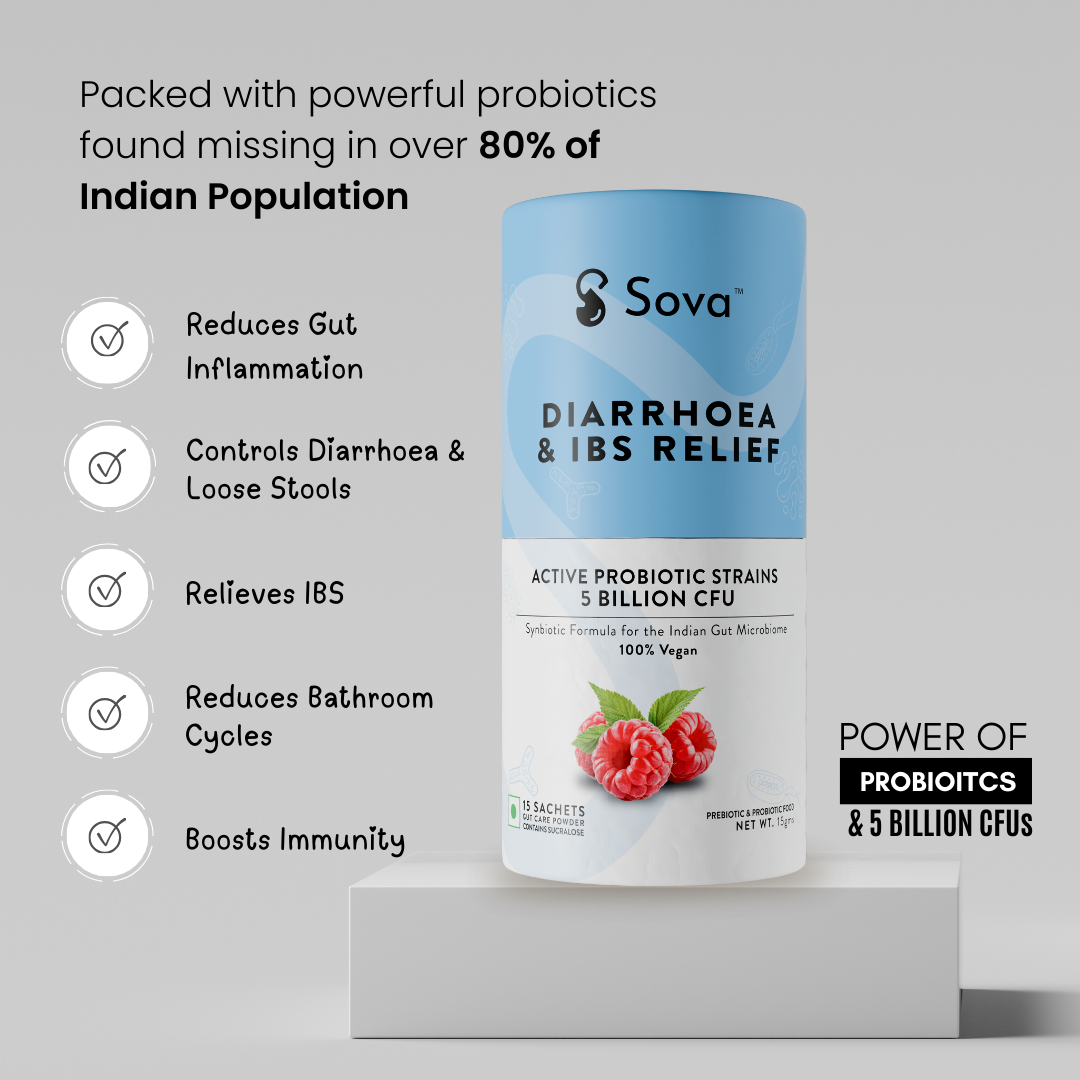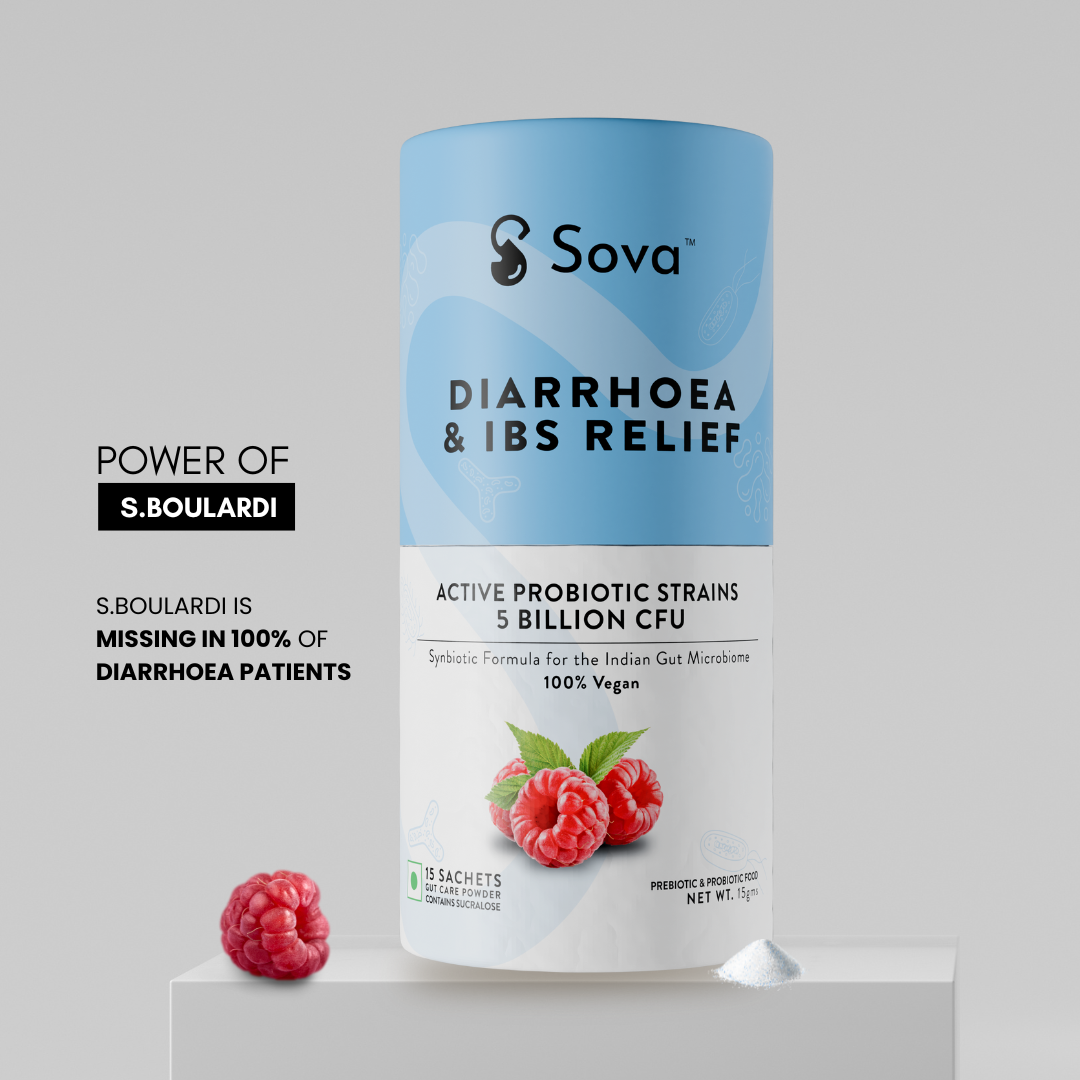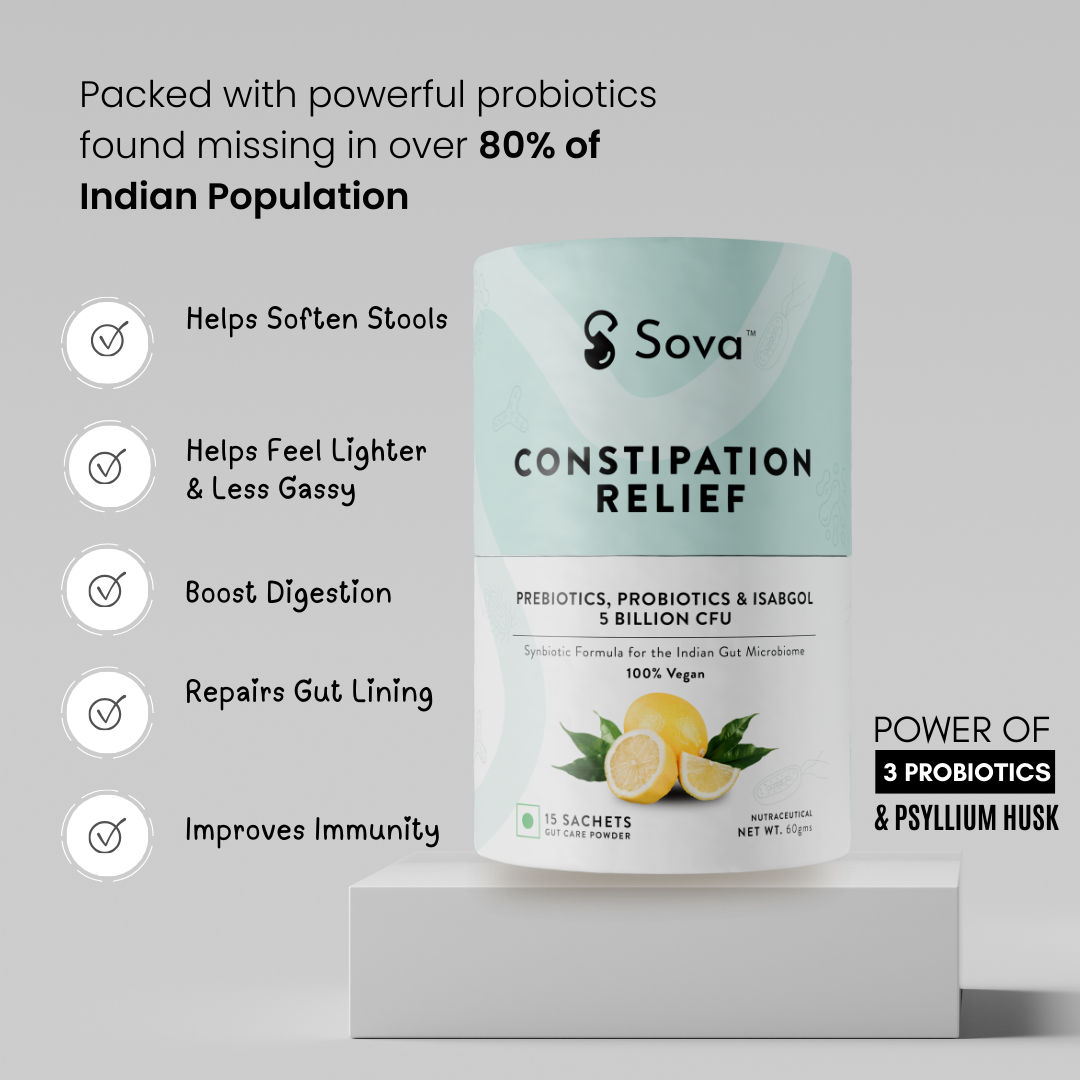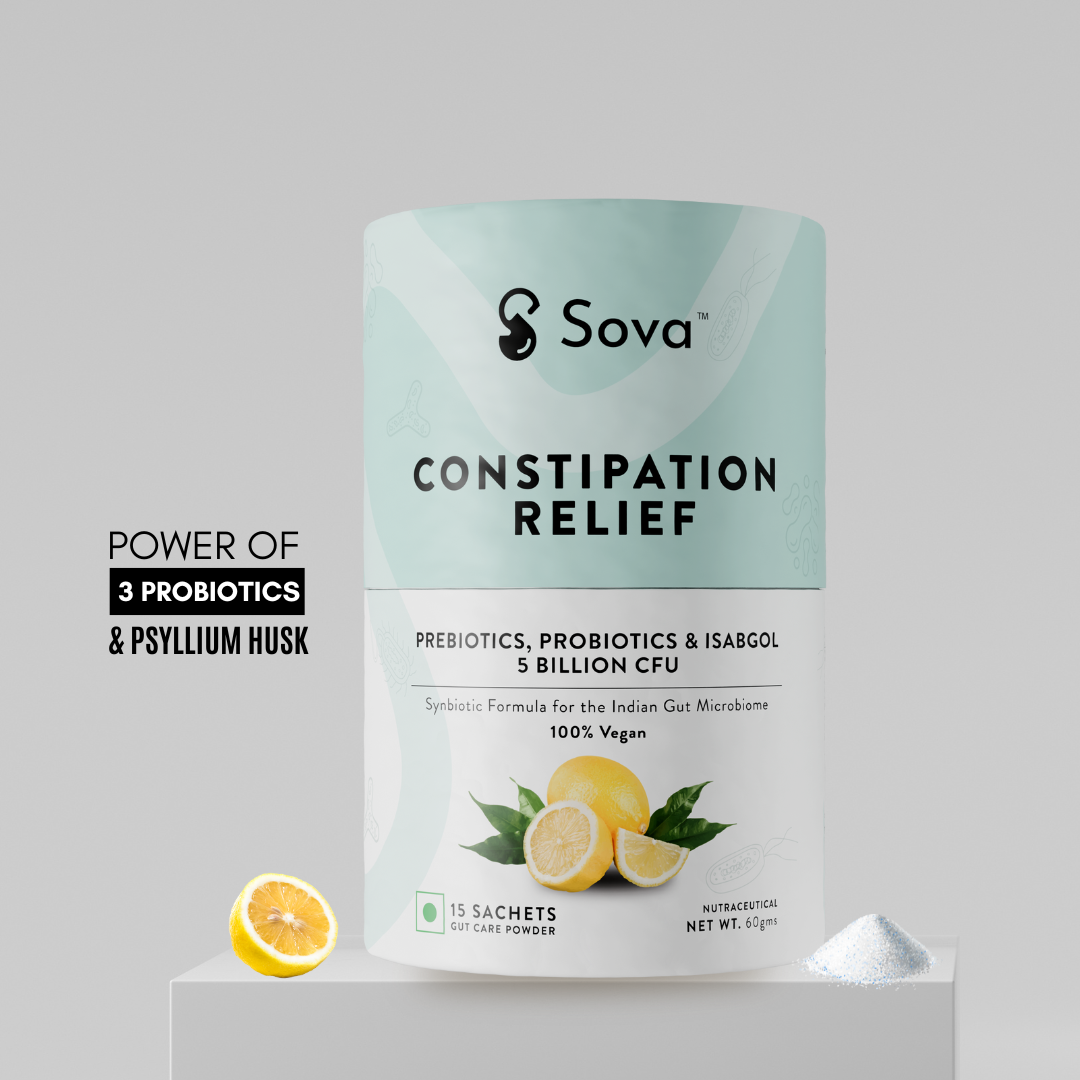Sova's IBS Reversal Program
0k+
Reversal Journeys
0.6+
Ratings on Google
0+
Gut Experts & Care Advisors
0k
Gut Biome Profiles Mapped
Digestive Symptoms You Can Get Relief From
Results That Our Happy Customers Enjoy
Symptom Reversal
91% Customers enjoy complete symptom reversal within 4 months
Need for Medication
99% Customers have No or Low dependency on medications
No Anxiety
99% Customers are no longer anxious about the food they eat
Food Intolerances
95% Customers are free from previous food sensitivities
What our Customers Have to Say
How We Stand Out
Sova Health
Others
Fixing Root Causes vs. Symptom Management
Backed By Gut Microbiome Science (In House Diagnostics)
Non Usage of Medicine For Treatment (Precision Nutrition Plan)
Proprietary Database of Desi Microbiome Profiles
Balanced Team of Gut Microbiome Experts
Based on Actionable Insights from Biome Test
Actionable Insights & Personalized Gut Care
A comprehensive approach to gut care, including Gut Microbiome Testing, Gut Expert Consultations, Personalized nutrition plans, gut-friendly supplements & lifestyle modifications.


